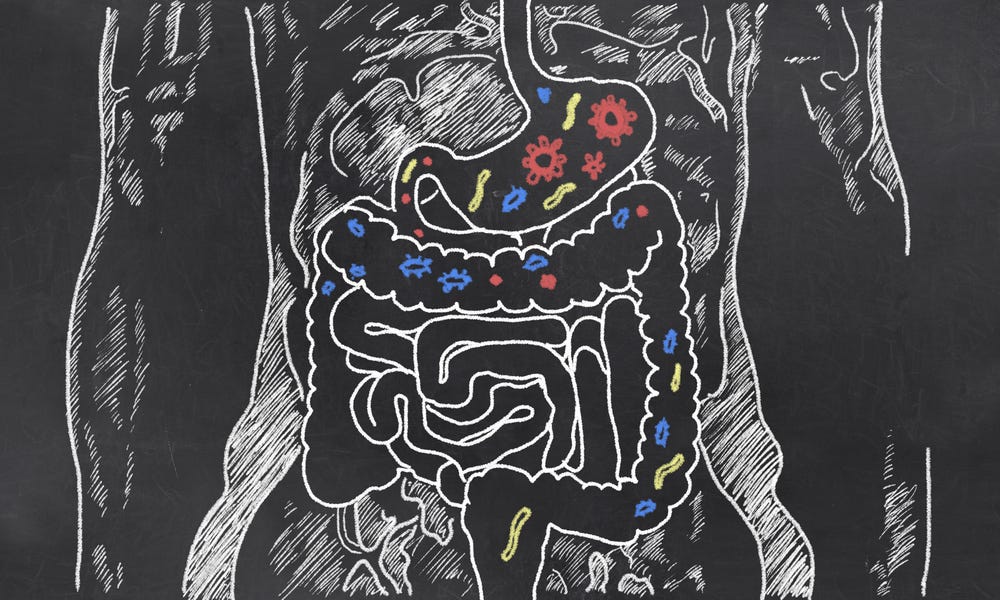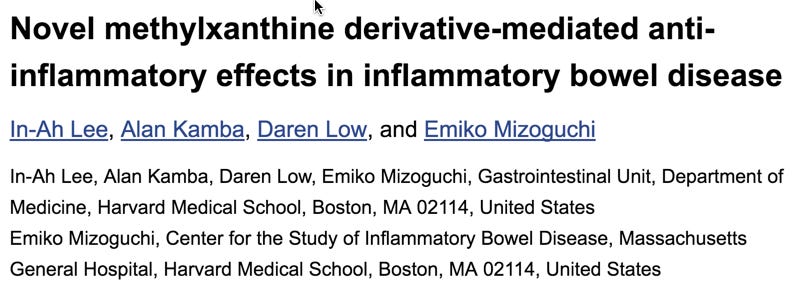Gut problems hollow out the brain — here’s how to fix it
Even more, I’ll show you the brain and gut connection.
It’s always amazing to realize how much every part of the body affects all the others!
I’ll start with talking about irritable bowel syndrome, or IBS.
IBS is so common today that is probably the new normal.
And this is even before realizing that IBS may or may not be diagnosed.
Most often it is not diagnosed, but people know or assume they have it based on reading about the common symptoms of IBS.
Irritable bowel syndrome comes in a couple of forms.
It can be the type where you get a lot of constipation.
Or, you can have the type where you have a lot of diarrhea.
And yet another type is when you don’t necessarily have problems with your bowel movements — but you have pain, swelling and inflammation in your bowel.
Sometimes there may even be blood.
And each type is completely uncomfortable and inconvenient.
But more than those issues, IBS affects the brain.
This is an important study that shows people with irritable bowel syndrome lose brain cells!
In this study, researchers did brain scans of people with IBS.
Simply put, they found that patients with IBS lose brain cells.
The brain kind of hollows out in certain areas — especially areas related to cognitive abilities.
As the study says:
IBS was associated with decreased gray matter density (GMD) in widespread areas of the brain.
Many patients with IBS also complain of anxiety and depression.
In fact, about 70 to 80% of anxiety and depression patients have IBS.
So the study needed to rule out anxiety and depression as possible causes of the brain cell losses.
In accounting for anxiety and depression, we found that the differences in prefrontal and posterior parietal cortices remained in patients without anxiety or depression.
Now they could be sure that any changes they noticed were not caused by anxiety and depression.
But could the changes be caused by the pain responses to the IBS?
The researchers checked into that possibility and ruled it out, too.
In fact, the study found that IBS patients who do not experience pain have just as many or more hollowing out of brain cells as patients who experience pain with their IBS.
So now they knew that any changes in the brain’s density had to be the result of the IBS itself.
Finding a way to cure the IBS should then preserve brain cells.
So, it pays to get rid of gut problems.
And it looks like it all ties back to something we’ve written about previously.
We’ve discussed before how the gut gets overrun with endotoxins.
The authors of the study don’t really know why the brain gets hollowed out with gut problems.
However, we have a lot of reason to believe that endotoxins are the culprit.
The damage from IBS could be due to floods of endotoxins spilling out of the injured gut into the entire body.
These endotoxins affect every cell in the body.
IBS and inflammation are just the beginning of the problems caused by endotoxins.
And many of them apparently affect the brain.
This study shows that it’s critically important to fix an inflamed gut to stop further brain damage.
Not to mention that you need to stop all the other organ damage caused by endotoxins.
This is usually when someone decides that they need to see a doctor.
But getting the right care isn’t that simple.
In modern medicine, as it stands today, you go to a gastroenterologist when you have IBS.
But the gastroenterologist has no clue about the widespread changes in the entire body, especially the brain, that are brought about by IBS.
So that leaves you with a partial solution, and a continued problem with brain cell damage.
But what else can you do to fix IBS?
One of the miracle drugs for IBS is cyproheptadine.
It’s a first-generation, old-style antihistamine.
And it’s been shown to be almost completely safe in long-term studies.
Those long-term results are what make cyproheptadine trustworthy.
Cyproheptadine can help fix IBS problems if it’s taken over several months.
Other things that are very supportive include a raw carrot salad every day — especially if you eat it on an empty stomach.
That carrot fiber seems to bind with bile salts and remove excess estrogen from the body.
It also provides a reservoir to hold harmful toxins and excrete them out.
And there’s a surprising solution to IBS that most people don’t think about.
Coffee.
Let me explain a bit about how coffee comes into the picture.
It turns out that a lot of IBS is related to overgrowth of yeast or fungus in the gut.
The overgrowth triggers an immune response — inflammation in the body.
The authors of this Harvard study have stated that these yeasts or fungus trigger what is called mammalian chitin.
Chitin is essentially a natural polymer (or plastic), and it’s most commonly found in the exoskeletons of insects, shellfish, and so forth.
Chitinase is an enzyme used by organisms that use chitin or must digest it.
Human beings have a version of Chitinase called Acidic mammalian chitinase (AMCase).
Now, what the authors of the Harvard study say that this mammalian chitin
plays a pivotal role in the pathogenesis of inflammatory bowel disease (IBD), bronchial asthma and several other inflammatory disorders.
They found that caffeine is one of the most potent chemicals to get rid of these harmful levels of chitin.
The major anti-inflammatory effects of caffeine result from 2 main mechanisms.
This is probably why one of the traditional remedies for IBS is coffee enemas.
It’s not a “pretty” method, but it’s effective.
If you’re going to try coffee enemas, make sure that the coffee is cool.
And you may want to go easy with small amounts until you figure out the effects.
An easier way to get the benefits would be to just drink more coffee.
Many people with IBS believe that coffee actually is bad for IBS, but it’s not.
The study shows the coffee is one of the KEY ways of getting rid of IBS.
Besides, drinking coffee is much more pleasant than ignoring the gut issue and continuing to suffer with IBS.
You definitely want to work on gut issues.
Once you fix your gut issues, your health will return.
You may have noted that the researchers in this Harvard study state that not just IBS is associated with gut problems.
Bronchial asthma and even back problems are also connected to gut issues.
In fact, most diseases, including diabetes and erectile dysfunction, are in part due to gut problems.
The bottom line is that you need to fix the gut problems to feel better.
I am sure that the brain cells will regrow.
And I’m sure that you will find your overall health is greatly improved.
Matt Cook is editor-in-chief of Daily Medical Discoveries. Matt has been a full time health researcher for 26 years. ABC News interviewed Matt on sexual health issues not long ago. Matt is widely quoted on over 1,000,000 websites. He has over 300,000 daily newsletter readers. Daily Medical Discoveries finds hidden, buried or ignored medical studies through the lens of 100 years of proven science. Matt heads up the editorial team of scientists and health researchers. Each discovery is based upon primary studies from peer reviewed science sources following the Daily Medical Discoveries 7 Step Process to ensure accuracy.
Citations:
Regional Gray Matter Density Changes in Brains of Patients With Irritable Bowel Syndrome
http://www.sciencedirect.com/science/article/pii/S0016508510004828
Novel methylxanthine derivative-mediated anti-inflammatory effects in inflammatory bowel disease
http://www.ncbi.nlm.nih.gov/pmc/articles/PMC3921497/
Oral caffeine administration ameliorates acute colitis by suppressing chitinase 3-like one expression in intestinal epithelial cells
http://link.springer.com/article/10.1007/s00535-013-0865-3







